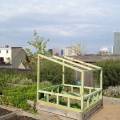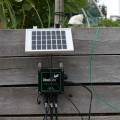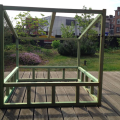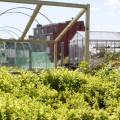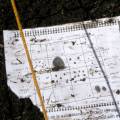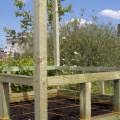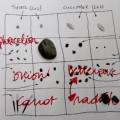P2P FOOD LAB
The project will develop a Collective Awareness Platform for peer-to-peer urban food systems, called P2P Food Lab. The platform will support urban gardening, collective decision making, citizen science, and knowledge creation for all aspects of urban food. A P2P Food Lab integrates open greenhouses, sensors, DIY processing boards, telecommunication networks, pattern recognition, statistical analysis, phone apps, wikis, and visualization tools. The platform uses social media for the bottom-up organization of cooperative activities and the gathering of knowledge. The project will develop viable economic models and paradigms for governance based on participatory democracy and self-organization and incorporate them in the platform for the community planning and food distribution.
The project will set up use cases in Barcelona, Brussels, Paris, and the Venice-city region and study the social innovation triggered by P2P Food Labs in new or existing urban food communities. All communities will consider the full cycle of urban food systems (from production to waste). The project will test whether P2P Food Labs improve the quality of food production, lead to greater sociality, and provide adequate data for citizen science. Artistic methods are used to create a space for the needed disruptive action and to produce effective representations of the results.
P2P Food Lab is a platform to support urban gardening, collective decision making, citizen science, and knowledge creation for all aspects of urban food. A P2P Food Lab integrates open greenhouses, sensors, DIY processing boards, telecommunication networks, pattern recognition, statistical analysis, phone apps, wikis, and visualization tools.
The platform uses social media for the bottom-up organization of cooperative activities and for the gathering of knowledge. The project develops new economic models and paradigms for governance based on participatory democracy and self-organization and incorporates them in the platform for the community planning and food distribution.
P2P Food Lab involves citizens in every aspect of the life cycle of the food value chain. For example, P2P Food Lab helps you get started
growing your own vegetables. For that reason P2P Food Lab developed a Starter Kit to make growing vegetables easy.
The data gathered in the project is used for two types of network analysis. The sensor data is combined with user's observations (notes
and photos) and the advice and hypotheses expressed in the conversations between participants. The web site facilitate this bottom-up collection of data and emergence of reusable knowledge using a citizen science approach.
The analysis of the exchanges between the stakeholders (participants, local private and public actors) aims to create a representation of
the social and economic dynamics induces by P2P Food Lab. In particular, we trace the establishment and evolution of the P2P Food Lab Commons and the effects of different governance structures on the Commons.
For the P2P Food Lab atelier at the CAPS conference, july 1&2 in Brussels:
We will bring all the equipment and all the material (wood, cover, electronic components).
A space of 3x5m is small. Could it be larger? Double that size would be great.
4 electricity wall plugs will be enough. I will bring a multi-socket mains extension to connect, for example, several soldering irons.
I propose four sessions of 1.5 hours each, and two short introductions
- 9h10 Introduction to P2P Food Lab (20')
- 9h30-11h00 making of the greenhouse structure (1h30, wood work)
- 11h-12h30 making of the greenhouse cover (1h30, sewing machine)
- 13h40 Introduction to P2P Food Lab (20')
- 14h-15h30 making of the sensorbox (1h30, soldering/electronics)
- 15h30-17h overview of the social web site, data visualization & gardening techniques (1h30)

potato commons - burning ice march 2014 - urban artfarm may 2014
field liberation front

